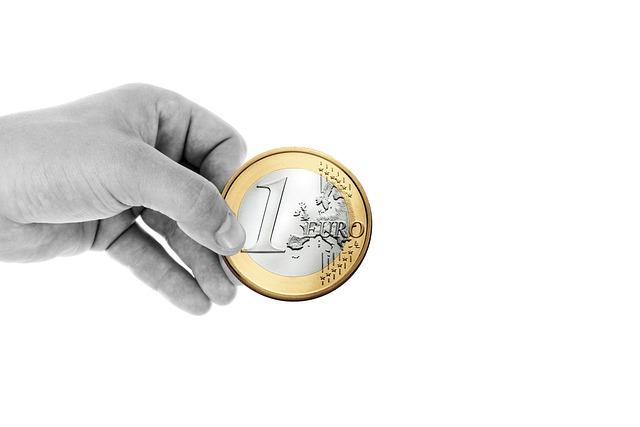Let’s face it-money can feel confusing, overwhelming, or maybe even a little scary when you’re just starting out. But here’s the good news: mastering your finances doesn’t have to be rocket science! Whether you’re fresh out of school,starting your first job,or just want to get a better handle on your cash,this beginner-amiable guide will walk you through easy tips to take control of your money. No jargon, no elaborate formulas-just simple, practical advice to help you build a solid financial foundation.Ready to become money-savvy? Let’s dive in!
Getting Your Budget in Check Without Feeling Overwhelmed
Starting to manage your finances doesn’t have to feel like climbing a mountain! The secret is breaking your budget into bite-sized pieces that are easy to handle. Begin by listing all your income sources and monthly expenses-yes, even that extra coffee or streaming subscription. Feeling in control comes from seeing exactly where your money is going.Use simple tools like apps or even a paper notebook; whatever keeps you consistent without stress. Remember, this is about progress, not perfection.
Next, set realistic goals that motivate you rather than scare you. Maybe it’s saving $50 a month or cutting back on takeout twice a week. Small wins add up fast and keep you energized. Here’s a swift cheat sheet to help you spot easy budget wins:
- Track your spending weekly (not daily to avoid burnout)
- Automate savings-even $10 counts!
- Cancel unused subscriptions
- Cook at home more often
| Expense | Action | Potential Savings |
|---|---|---|
| Coffee Runs | Make at home twice a week | $20/month |
| Streaming Services | Cancel one unused subscription | $15/month |
| Dining Out | Reduce by half | $40/month |

Smart Saving Hacks That Actually Work for Beginners
Getting started with saving money might seem daunting, but small steps can lead to big changes. One practical hack is to automate your savings. set up your bank account to automatically transfer a fixed amount into a separate savings account every time you get paid. This way, saving becomes effortless and consistent without you even thinking about it. Another game-changer is the 24-hour rule: whenever you feel the urge to splurge on something impulsive, wait one full day before making the purchase. You’ll often find the urge passes,saving you money on things you didn’t really need.
Budgeting doesn’t have to be complicated either! Try breaking your expenses into simple categories like Needs, Wants, and Savings. This makes it easier to track and understand where your money is going. Here’s a quick cheat sheet to help you focus on the essentials:
| Category | Example Expenses | Focus Tip |
|---|---|---|
| Needs | Rent, groceries, utilities | Cover first, always |
| Wants | Coffee out, streaming services | Limit & prioritize |
| Savings | Emergency fund, investments | Pay yourself first |

How to Crush Debt without Losing Your Mind
Tackling debt doesn’t have to feel like a never-ending nightmare. The key is breaking it down into manageable steps and celebrating small wins along the way. Start by listing all your debts, from the smallest balance to the largest, and pick a repayment strategy that suits your personality-whether that’s the debt snowball (paying off smallest debts first) for quick motivation or the debt avalanche (attacking high-interest debt first) to save money long term. Remember, your mental health matters just as much as your bank balance, so don’t overload yourself with unrealistic goals.
To keep the process less overwhelming, create a simple plan that includes:
- Prioritizing your debts based on interest rates and emotional weight
- Setting up automatic payments so you never miss a due date
- Tracking your progress visually, like with charts or a colorful checklist
Here’s a quick peek at how your monthly payments might look with the two popular methods:
| Debt Type | Debt Snowball Payment | Debt Avalanche Payment |
|---|---|---|
| Credit Card ($1,200) | $200 | $350 |
| Student loan ($8,000) | $400 | $250 |
| Personal Loan ($3,000) | $150 | $150 |
Choose the method that feels right for you, stick with it, and watch how paying off debt can actually give you a fresh sense of control-not chaos!
Investing basics Made Simple and Stress-Free
Getting started with investing might feel overwhelming, but it doesn’t have to be. The key is to focus on a few simple principles that make the whole process less intimidating.first, understand your financial goals: Are you saving for a cozy retirement, your dream vacation, or maybe a new home? Once you have a clear target, you can pick investment options that align with your timeline and risk appetite. Remember, diversification is your best friend-it means spreading your money across different types of assets to reduce risk. Think of it as not putting all your eggs in one basket.
Here’s a handy checklist to help you get agreeable with investing:
- Start Small: You don’t need thousands of dollars to begin. Many platforms allow investing with as little as $50.
- Know Your Risk: Stocks are exciting but can be rollercoasters,while bonds tend to be steadier.
- Keep Learning: The more you read about markets and investment tools, the better decisions you’ll make.
- Use Automated Tools: Robo-advisors and apps can simplify portfolio management.
| Investment Type | Risk Level | ideal For |
|---|---|---|
| Stocks | High | Long-term growth seekers |
| Bonds | Low | Conservative investors |
| Mutual Funds | Medium | Diversification lovers |
| ETFs | Medium | Flexible investors |
Building credit Like a pro Even If You’re Starting From Scratch
Starting from zero doesn’t mean you can’t build a solid credit foundation-consistency and smart choices are your best allies. Begin by getting a secured credit card or becoming an authorized user on a trusted family member’s account. These small steps show lenders you’re responsible, making future credit opportunities easier to unlock. Always pay your bills on time, as just one late payment can hurt your score. Additionally, keep your credit utilization under 30%-this means if you have a $1,000 credit limit, try not to carry a balance over $300. It’s all about proving you can manage credit without going overboard.
Another pro tip? Keep track of different types of credit to show versatility. This can include a mix of credit cards, small personal loans, or even a car loan later down the line. Here’s a quick look at how these can impact your score:
| Credit Type | Effect on credit | ideal Use |
|---|---|---|
| Secured credit Card | builds initial history | Small monthly purchases |
| Authorized User Status | leverages good standing | Supported by trusted users |
| Personal Loan | Shows ability to handle installment debt | Planned borrowing with fixed payments |
- Monitor your credit report regularly for errors-disputing mistakes can boost your score fast.
- Don’t close old accounts as the age of credit is a notable factor.
- Limit hard inquiries by spacing out credit applications.
Q&A
Q&A: Finance 101 – Easy Tips to Master Money for Absolute Beginners
Q: I’m totally new to managing money. Where do I start?
A: First off, take a deep breath - you’ve got this! Start by tracking your expenses. Just write down every dollar you spend for a week or two.It sounds tedious, but knowing where your money goes is step one to gaining control.
Q: How important is budgeting?
A: super important! Think of a budget as your game plan. It helps you make sure you’re not spending more than you earn and lets you prioritize what really matters. Start simple: list your income, then subtract fixed expenses (like rent), and see what’s left for fun and savings.
Q: I’m living paycheck to paycheck. How do I save money?
A: Saving can be tough, but even tiny amounts add up. Try the “pay yourself first” method-set up an automatic transfer to a savings account as soon as you get paid. It can be just $10 to start. Also, look for small areas to cut back, like making coffee at home instead of buying it.
Q: What’s an emergency fund, and why do I need one?
A: Think of your emergency fund as a financial safety net for those surprise expenses-like car repairs or medical bills. Aim for saving 3 to 6 months’ worth of living expenses. It gives you peace of mind and protects you from going into debt.
Q: Should I pay off debt or save money first?
A: It depends on your situation, but a good rule of thumb is to build a small emergency fund (around $500 to $1,000), then focus on paying off high-interest debt like credit cards. Once debt is under control, you can shift your focus to bigger savings goals.
Q: How can I improve my credit score?
A: Pay your bills on time every month-that’s the biggest factor! Also, don’t max out your credit cards, keep balances low, and avoid opening too many new accounts at once. It may take time, but it’s worth it.
Q: Should I invest if I’m just starting out?
A: Investing sounds intimidating, but it can be a great way to grow your money over time. Start with small, low-cost options like a retirement account or index funds once you have a solid emergency fund and no high-interest debt. Even a little bit goes a long way with compound interest.
Q: Any quick tips to avoid common money mistakes?
A: Yup! Avoid impulse buys by waiting 24 hours before making a purchase. don’t ignore bills or financial statements-stay informed. And remember, it’s okay to ask for help or use apps that make managing money easier.
Q: Where can I learn more about personal finance in a fun way?
A: There are tons of great podcasts, YouTube channels, and blogs that break down money stuff without the boring jargon. Some favorites include “The Financial Diet,” “Money Girl,” and “NerdWallet.” Find what clicks for you, and keep learning!
Money management doesn’t have to be scary. Start small, be consistent, and watch your confidence (and bank account) grow!
To Conclude
And there you have it – Finance 101 made simple! Remember, mastering money doesn’t happen overnight, but with these easy tips, you’re already on the right track. Keep it chill, stay consistent, and watch your financial confidence grow. Got questions or want to share your own money wins? Drop a comment below – let’s keep the conversation going. Until next time,happy saving and smarter spending!











